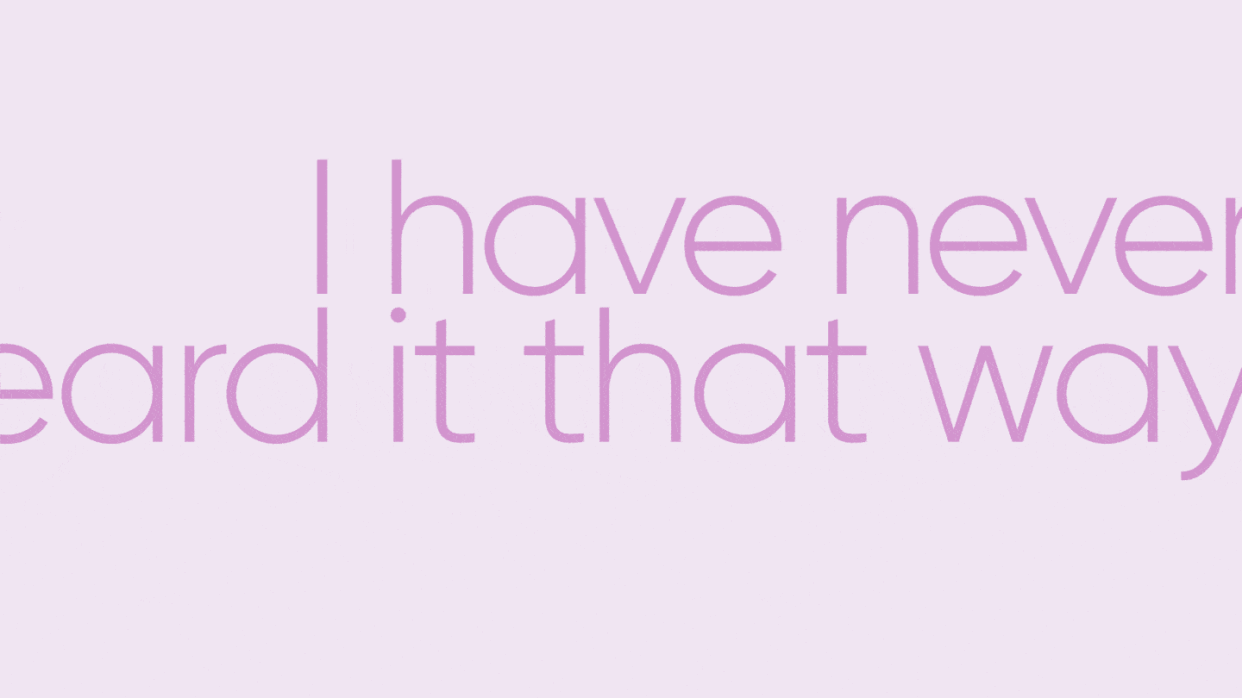Here’s How to Respectfully Disagree

"Hearst Magazines and Yahoo may earn commission or revenue on some items through these links."
With the presidential election creeping closer and so many issues at stake, entering political discussions can feel like walking into a land mine. We are more divided than ever, and it often feels like those around us are easily triggered. A study by the Pew Research Center sketches a bleak image: An increasing number of people in the United States view those on the opposite political side as lazy, immoral, closed-minded, dishonest, and unintelligent. It’s this kind of polarization that can make the months preceding the elections divisive and tough to navigate.
Unconstructive disagreements can tear families apart and splinter communities, with 19 percent of American voters acknowledging that political disagreements have hurt their relationship with a loved one.
But even without a looming election, regular everyday disagreements can be tough to navigate, particularly when it feels personal. A great technique is to pretend you are a student (the good kind). Navigating respectful disagreements takes practice, and it’s okay to not be perfect.
When we encounter someone we disagree with, it’s easy to make assumptions about why they hold their opposing views. It’s much more difficult, and powerful, to lean in to our curiosity and try to understand their side of the story. You may come out of these conversations still disagreeing, but certainly with a lot more empathy and understanding than before.
Here are five phrases to have in your back pocket for when you're struggling for words in a sticky situation.
1. “Thank you for your input. I have never heard it that way.”
For the times when you know that communicating your point of view is unlikely to be constructive, this is a good way of saying, “Hey, I hear you, and I have nothing more to offer to this conversation.” If we were to disagree instead (even with a polite "I respectfully disagree”), we open up room for the other person to challenge our views, which can escalate the tension. If you want to calmly end the conversation, you need to gently shut it down.
2. “I can tell we both care about [insert value]. Thanks for sharing.”
This is great for when you hold a shared value. For instance, you may both feel strongly about ending unemployment but disagree about the means of doing it. This is an effective way of highlighting this unifying factor—thereby making the other person feel seen and respected, while also tactfully ending the conversation.
3. “I would love to continue this conversation, but I want to ensure that I am respectful. Can we come back to it another day?”
This is a handy tactic for politely delaying a prickly conversation. Use this if you sense that this conversation is unlikely to be constructive because one of you feels triggered or less regulated than usual. This one is also handy for postponing the discussion if there’s alcohol involved, or if there are young children around who you’d rather not witness a disagreement.
4. “Tell me more.”
Your best friend, whom you usually see eye-to-eye with, just told you she believes in time-outs as a disciplining tactic for her children. Since the two of you have connected over nurture-driven childcare, you feel your defenses rise. That’s natural. However, if you do not fully hear and understand her position, it’s easy for a disagreement to escalate into a conflict.
This line may be the single most effective way to respectfully disagree with someone. Instead of jumping in with our opinion, we are leaning into curiosity and allowing the other person to be heard. If, after hearing what she has to say, you don’t want to continue the conversation, you can opt for one of the exit strategies above.
5. “I appreciate that you mentioned [insert point]. Would you be open to hearing my perspective?”
Now that you've asked your friend to tell you more about why she believes in time-outs, you understand her reasons. However, you believe that she overlooked some key consequences of this parenting method.
When we ask someone this question, we are allowing them to decide if they are receptive to listening to our perspective. If they say no, we are saving time and emotional energy, since it was unlikely to be a productive conversation anyway.
It is easy to force our ideological views onto those around us. But ultimately, it is far more constructive and helpful to set aside our ego and enter disagreements from a place of empathy, respect, and understanding.
I Respectfully Disagree, by Justin Jones-Fosu, is out now. Download an excerpt here.
You Might Also Like

